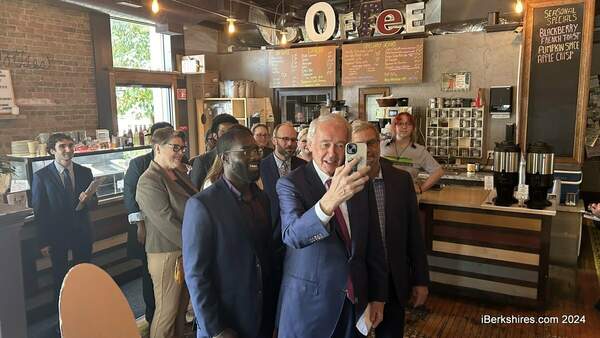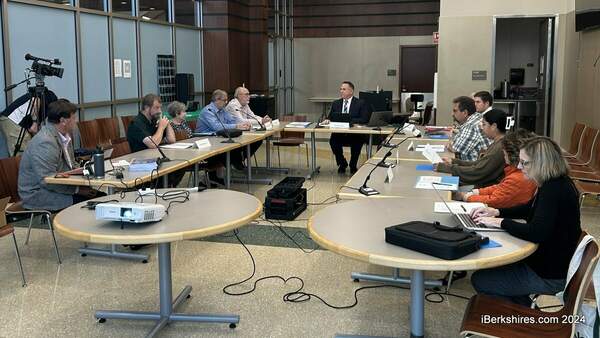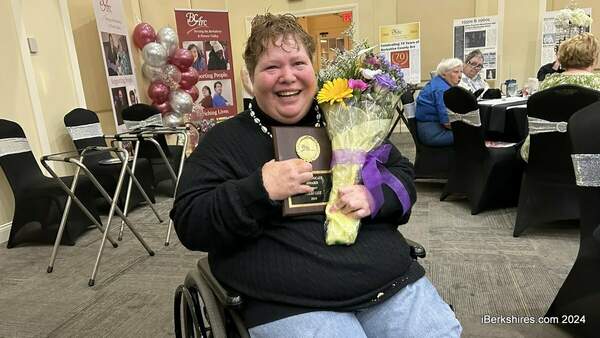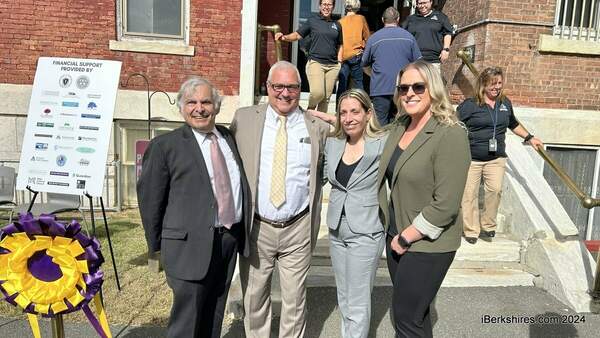
Pittsfield Officials Welcome Bird Scooters to City Streets

PITTSFIELD, Mass. — There is a new way to get around the city that travels up to 15 miles an hour and costs $1 plus 39 cents per minute.
Officials welcomed Bird electronic scooters to Pittsfield on Wednesday a week after they were deployed on the streets.
"We had a soft launch last week, and they're pretty popular. Yes, they're pretty popular and I'm really excited that this new business has chosen our city as a place where we can have multiple modes of transportation," Mayor Linda Tyer said during a press conference at Persip Park.
"That is the real goal of what we're doing here in the city of Pittsfield, is creating multiple modes of transportation whether you're a pedestrian where you're riding a bike, or you're on a scooter or you're driving your car, we now have a way for people to move around our city in multiple ways and I don't know about you, but every time I see someone on a scooter, or I see one of them parked it makes me smile."
Tyer added that the scooters are not only a way for people to move around the city, but are a way to enjoy the outdoors. They are recreational amenities but are also life amenities for people who don't have access to a car, she said.
The first week has generated more than 900 rides averaging 3 miles per ride, with 350 of them occurring on Sunday alone. There are around 20 scooters on the streets every day.
Public Services and Utilities Commissioner Ricardo Morales was credited for his vision in driving the work that Pittsfield is doing to create multiple modes of micro-mobility in the city.
"Micro-mobility might be new to some of you but it is not new to transportation world planning and it is definitely one of those things that we need to embrace," Morales said.
"We are not alone in this although we are potentially pioneers in this sort of venture in terms of micro-mobility in Berkshire County with welcoming someone like Bird."
Bird approached the city last fall looking for an opportunity to invest in micro-mobility in Pittsfield. Morales embraced the offer and was able to make a partnership with the company that benefits the city in multiple ways.
It is at no cost to the city and the Bird has agreed to hold all liability. Pittsfield's only job is to provide messaging and education.
In addition, there is a revenue-sharing agreement with the city that gives it 15 cents for every ride.
"We have been working very hard to do expand our transportation system, our transportation network between multiple modes of mobility whether it's bicycles, or people on wheelchairs or with mobility impediments, whether it's scooters or just walking, we want a city that is safe for all modes of transportation and that means that we need to think about micro-mobility and how people move," Morales explained.
"Not only that we are very excited to welcome, but essentially Bird you can say is also a tech company because they have a vast amount of information that will be very specific to Pittsfield. We have access to that information now in terms of usage, ridership, where people move from and to, where the trips originate, what times of the day, and that opens up a very important window into seeing how people interact in our city.
"We always estimate things like that and we look at what assumptions we have to make, now with micro-mobility data, we have numbers that we can look back into and make decisions for the future."
Two local fleet managers were hired to be responsible for the scooters' placement, charging, and general monitoring. Each manager has about 60 scooters in their possession that are switched out for charges and repairs.
The scooters are equipped with GPS that allows established prohibited zones and slow zones. Scooter etiquette is the same as it is for riding a bike and though there is no helmet law in the state, Bird recommends wearing one.
The company also requires riders to be 18 years or older and the city is working with them to create an age verification and preferred parking areas.
Reportedly the most popular area for riding has been the North Street corridor, which was redesigned with bike lanes last year.
Lauren Scribi, Bird's senior manager for government partnerships for the Northeast region, applauded the city for its commitment to offering residents and visitors an environmentally friendly way to access public transit and get around the city.
"For those who don't know, Bird is a global leader in environmentally-friendly electric transportation and we are thrilled to be here in Pittsfield, which I will say is currently the first e-scooter program happening in Massachusetts right now," she said.
Riding begins with downloading the Bird app and scanning the barcode on an available scooter. The company offers community pricing at a 50 percent discount to under-resourced riders, Pell grant recipients, select local nonprofit and community organizations, veterans, and senior citizens.
It also offers free rides to health-care workers and emergency personnel.
For more information visit www.bird.co.
Tags: scooter,















